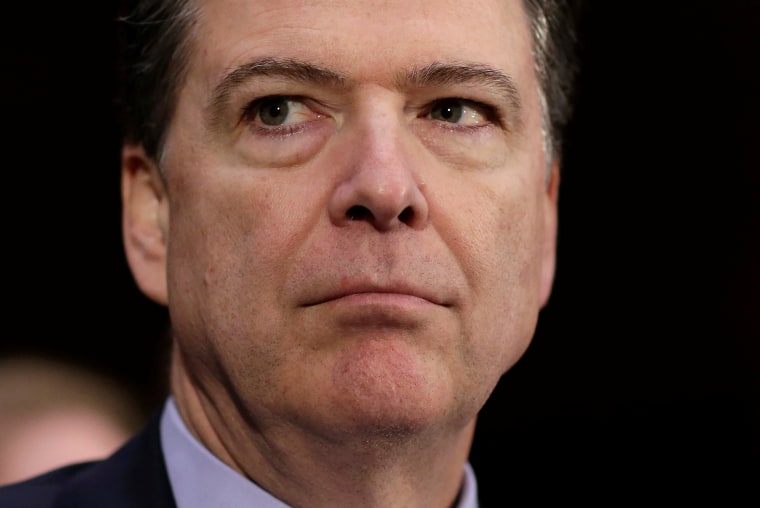On a day when civil liberties groups were expressing alarm at the tools the CIA has apparently developed for using electronic devices to spy, the FBI director was warning that its capacity to gather evidence in the cyberworld is shrinking.
"Picture a room. There's always been a corner of the room that was dark to us, where nation-states and the most sophisticated criminals would find ways to encrypt their data," Comey said at Boston College's cybersecurity conference on Wednesday.
"More and more of that room is becoming dark as encryption has become the default, available through a huge number of apps. It becomes a feature of the work of drug dealers, armed robbers, terrorists, pedophiles, and bad people of all sorts."

As an example, Comey said, during the last three months of 2016 the FBI lab received 2,800 electronic devices sent in by local police and federal agents looking for evidence they contain. But analysts were unable to open 1,200 of them, "using any technique."
"That shadow is spreading from the corner to more and more of the room."
The FBI fought a court battle with Apple last year over access to a smartphone used by one of the attackers in the December 2015 terrorist shooting in San Bernardino, California. Agents eventually got into the phone only after paying hundreds of thousands of dollars to an undisclosed person who came up with a way to bypass the phone's security features.
Related: FBI Director Asked Justice to Reject Trump Wiretap Claim
As Comey spoke, civil liberties groups were reacting to the latest dump of documents from Wikileaks, containing what appeared to be descriptions of dozens of methods developed by the CIA to eavesdrop on conversations and invade computers.
"The Wikileaks disclosure reveals a wide range of previously unknown vulnerabilities in popular consumer products, including the iPhone, the Android phone, and the Samsung Smart TV," said Marc Rotenberg of the Electronic Privacy Information Center.
"Congress should move quickly to establish a data protection agency to help address the enormous privacy risks American consumers will now confront."
While declining to verify the authenticity of the leaked documents, the CIA said it is forbidden by law from using those methods to spy on anyone in the US.
"CIA is legally prohibited from conducting electronic surveillance targeting individuals here at home, including our fellow Americans, and CIA does not do so," said Dean Boyd, a spokesman for the agency.
He says the CIA’s activities are subject to rigorous oversight by Congress.


